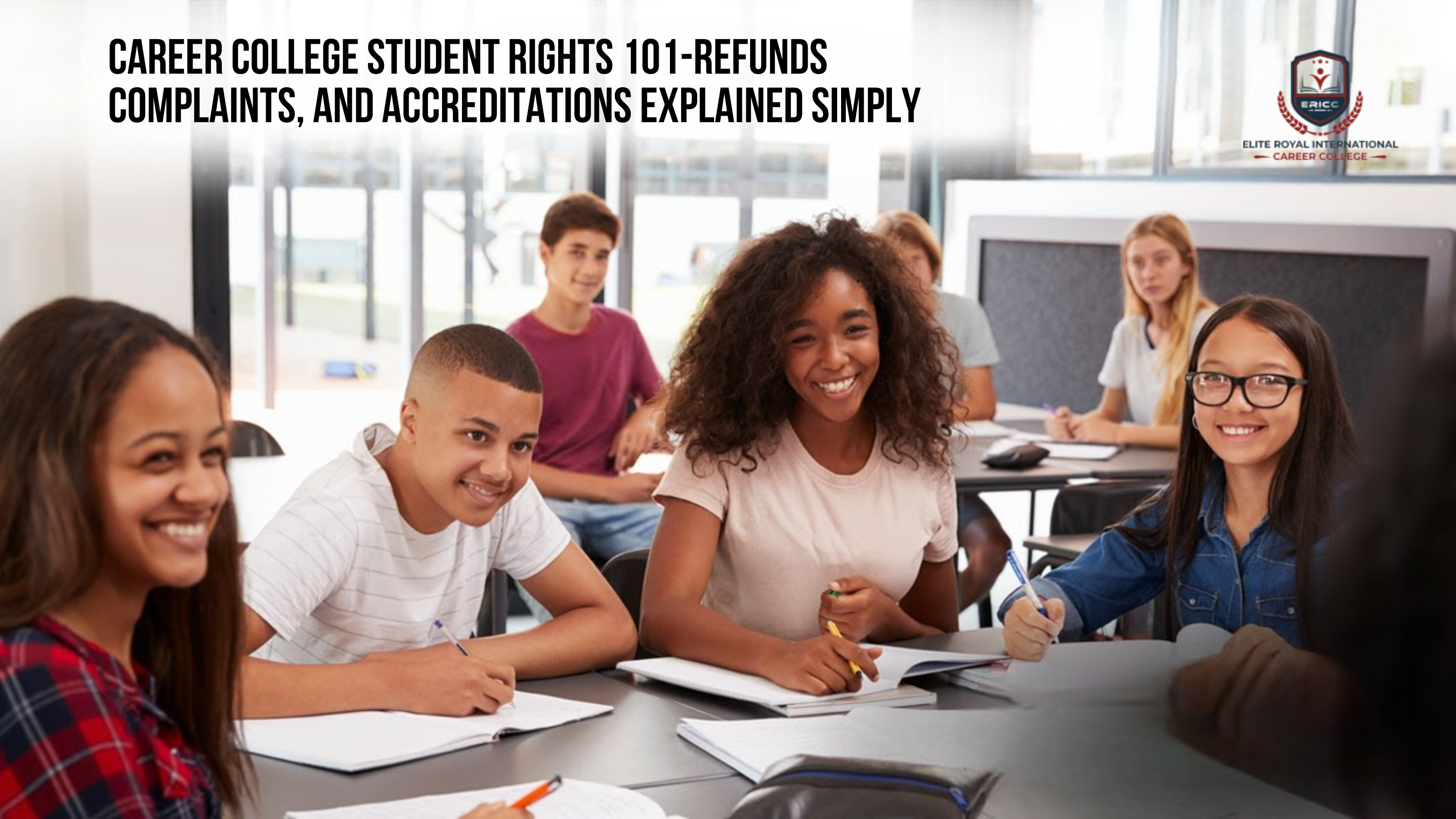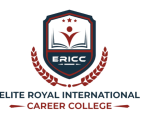
You’re taking a huge step toward a new career. It’s an exciting time, but it can also feel overwhelming. Especially when you’re looking at private career colleges in Ontario.
You’re investing your time, your hopes, and a lot of your hard-earned money into this path.But what happens if things go sideways? What if the program isn’t what they promised, or if you suddenly can’t afford the fees anymore? Most students don’t know where to turn when they have a complaint or need to withdraw.
The rules around accreditation, refunds, and student protection are often complex legal documents that seem impossible to navigate. You deserve to understand your rights simply and clearly. Think of your enrollment contract not just as a fee agreement, but as your shield of protection. This guide is here to help you understand your Career College Student Rights.
We’re cutting through the jargon and regulatory noise. We’ll give you the facts you need to protect your investment. This is your definitive guide to Career college student rights 101 explained simply.
Fundamental Career College Student Rights Regarding Your Tuition and Contract
That agreement comes with powerful Career College Student Rights that protect your financial investment. You don’t want to find yourself in a situation where you’ve paid thousands of dollars only to realize you hate the program and can’t get your money back. Understanding the Student refund policy career college is essential for all students.
Let’s unpack the key financial protections built right into the Ontario regulations.
The Non-Negotiable Two-Day Full Refund Window
You are entitled to a full refund if you notify the college in writing that you want to withdraw within this short window. You don’t even have to give a reason for your withdrawal. This initial protection is your safety net, ensuring you don’t feel trapped if you have immediate second thoughts.
Why is this so important?
It’s like returning an item to the store right after you buy it—no questions asked!
Partial Refunds are Calculated After Withdrawal
The college is allowed to keep the lesser of 20% of the total program fees or $500, plus the prorated fees for the portion of the program you’ve already received. For instance, if you complete 20% of a program, the college keeps the initial administrative amount plus the cost of that 20% instruction. It’s easy to see how this can quickly add up, so be sure you understand the refund tables provided in your contract.
Limits on Fees Colleges Can Collect Upfront
Before you even start the program, the college is legally limited in how much they can collect from you. Specifically, they cannot collect more than the lesser of 20% of the total fees or a significant amount before the contract is signed. This rule stops colleges from financially overwhelming students at the very beginning.
You’ll want to check your contract carefully to make sure you weren’t overcharged before you even started classes.
Registration Fee Policy
A non-refundable registration fee of $2,000 is required. Each career college has its own policy regarding registration fees, but at ERICC, this amount is explicitly stated as non-refundable. However, it’s important to note that while the registration fee cannot be refunded, tuition fees are subject to refund under the applicable Career College Student Rights and refund policies.
Protection Against Program Discontinuation
What if you’re halfway through your diploma and the college suddenly decides to close or stop offering your specific program? You are absolutely entitled to a full refund if the college discontinues the program before you can complete it.
How Does the Career College Complaints Process Protect Students in Ontario?
You know your financial Career College Student Rights now, but what happens when a college breaches them? It’s tough to take on an institution by yourself, but you don’t have to. There’s a formal Career College complaints process in place, overseen by the Superintendent of Private Career Colleges, to provide you with an avenue for resolution. It’s a step-by-step procedure designed to give you a voice and hold the college accountable. This is where the government steps in to protect your interests.
- Every registered career college is required to have a formal, written student complaint procedure.
- Once you’ve followed the college’s procedure and you’re not satisfied with the outcome, you can refer your complaint to the Superintendent of Career Colleges.
- The Superintendent can only investigate complaints that fall within the scope of the Act.
- When navigating the Career College complaints process, documentation is key.
What Is Career College Student Protection, And Why Is It Crucial For Students In Ontario?
The term Career College student protection goes beyond just refunds and complaints.
It encompasses the quality of your education, the legitimacy of your diploma, and your safety while enrolled. Because private career colleges are run as businesses, the government created specific Career College Student Rights Ontario regulations to prevent them from cutting corners. Ultimately, you’re relying on this protection to ensure your investment pays off with a relevant, high-quality credential.
- If a college or program isn’t approved by the Ministry of Colleges and Universities, then your Career College Student Rights are essentially nonexistent.
- One of the key risks to your investment is training that’s obsolete before you graduate.
- The need for protection is particularly urgent for students traveling from abroad. If an International Career College Ontario makes misleading statements—saying they can guarantee a visa—you are entitled to a full refund.
- This higher default rate emphasizes why strict Student refund policy career college compliance is so critical.
Why Do Students Commonly Withdraw, And How Do My Career College Student Rights Factor into That Decision?
Nobody enrolls in a program planning to drop out. Yet, for many students, circumstances change, and they decide to leave before graduation. You’re making a life choice when you start a career college program, but life itself often gets in the way. Understanding the most common reasons for student withdrawal can help you prepare and, critically, shows you when your Career College Student Rights kick in to minimize your loss. It’s important to realize that withdrawal isn’t always a failure of will; sometimes, it’s a smart financial decision.
- Research suggests that non-academic reasons like financial reasons and family responsibilities are major causes for students deciding to stop out.
- Another key reason students withdraw is the quality of the program or the college itself.
- Private career colleges generally have higher annualized tuition than public options, making the financial burden heavier.
Conclusion
You’ve armed yourself with the knowledge of your rights regarding tuition, complaints, and program quality. But the conversation about Career College Student Rights isn’t over yet.
The Private career college sector in Ontario faces an undeniable need for increased transparency and modernization. The future will likely see regulators being forced to adapt to the reality of the student demographic, particularly the massive increase of international students. We’re going to see ongoing pressure for the Ministry to publish better data—like clear complaint histories—so you don’t have to fly blind when choosing a school.
The emphasis will shift from merely having rules in place to having a regulatory body that enforces them in a timely manner. Expect to see new discussions about accountability, where colleges that repeatedly overcharge students or offer outdated programs face quicker, harsher penalties.
The goal is to build a post-secondary system where every student, whether domestic or international, can pursue their career dreams on a level playing field. You’ll be better served by a system that prioritizes student success over simple profit generation.




